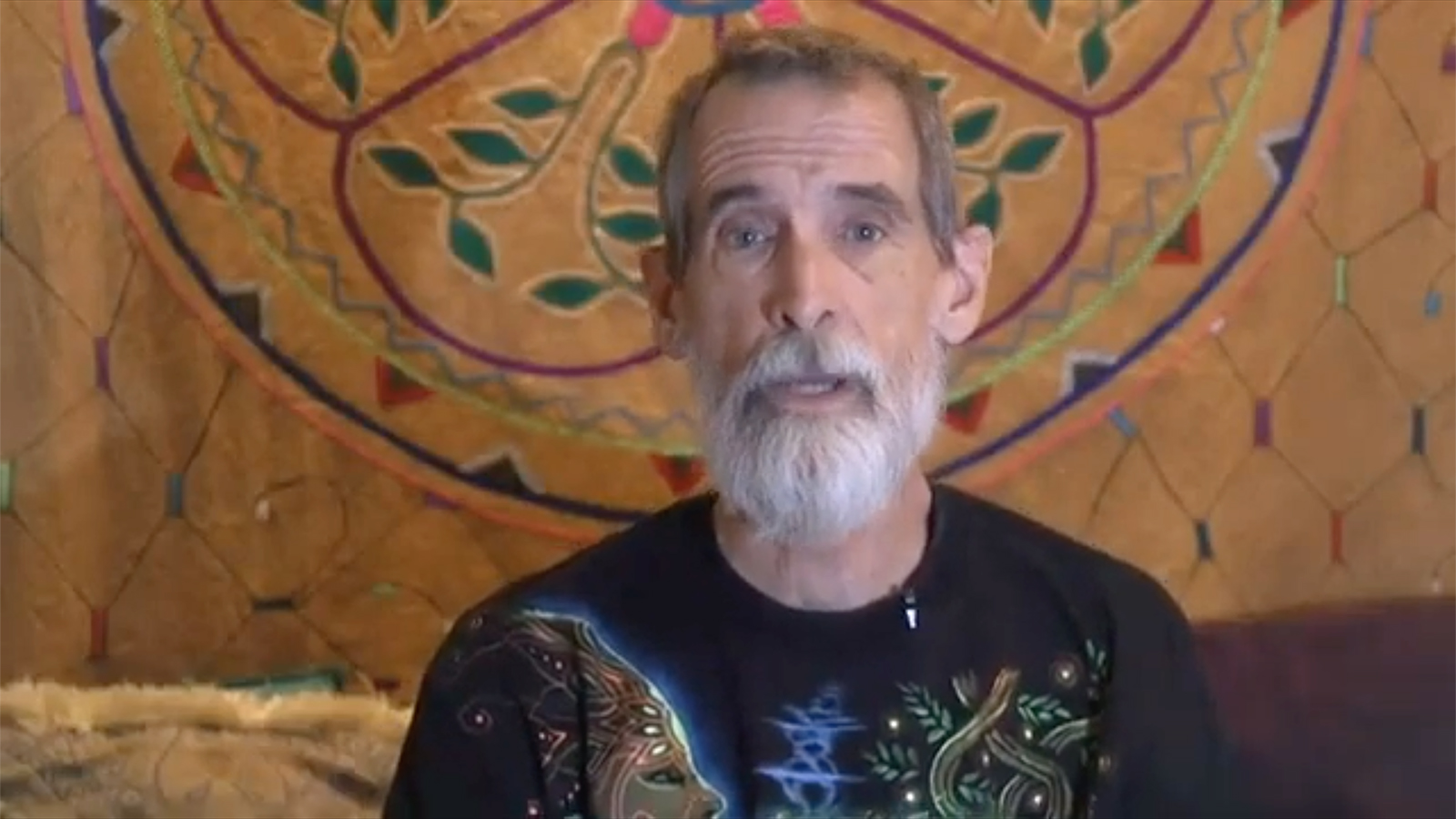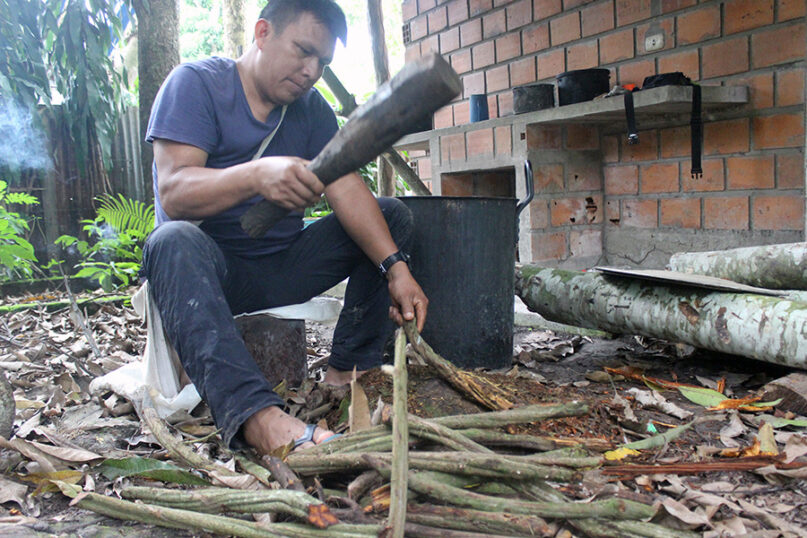(RNS) — Every other weekend, Scott Stanley, founder of the Arizona Yagé Assembly, facilitates sacred ceremonies where congregants share ayahuasca, a plant-based psychedelic they say “has the capacity to heal the entire human being.”
This January, the congregation held its first ceremony at a new 50-foot-wide yurt it built on the western edge of the Tucson desert. Arizona Yagé Assembly was founded in 2015.
Stanley said the Yagé Assembly will continue to hold ceremony there even as an Arizona federal judge recently dismissed many of the claims they filed — along with the North American Association of Visionary Churches, the Vine of Light Church and its late founder Clay Villanueva — to try to block federal and local law enforcement from regulating their use of ayahuasca.
“The DEA is attempting to close off all avenues for us to practice or engage in our spiritual practice,” Stanley added. “We’re fighting this and we expect to win.”
In a March 30 order, U.S. District Judge Roslyn O. Silver said the religious groups haven’t “suffered any legal wrong” to justify moving forward with an Administrative Procedure Act claim against Attorney General Merrick Garland and officials with the Drug Enforcement Administration.
A big component of this case is a DEA process by which a group can file a petition for a religious exemption in its use of the ayahuasca plant, which contains dimethyltryptamine (DMT) — a Schedule I drug that’s illegal under federal law.
Known as “huasca” or “yagé,” ayahuasca has been traditionally consumed by Indigenous people in liquid form “as part of shamanic rituals designed to communicate with celestial supernatural forces or the spirits of the forest,” Andrew Dawson, professor of modern religion at Lancaster University, wrote for The Conversation.
Consuming it often induces vomiting and may result in the involuntary evacuation of the bowels, Dawson writes, adding that its “purgative nature is positively construed as an external physical manifestation of inner spiritual cleansing.”
The religious groups, in a May 2020 lawsuit filed in a U.S. District Court of California, claimed the DEA “has a policy of denying regulatory services to visionary churches and refusing all requested religious exemptions from the (Controlled Substances Act) until and unless compelled by court order.”
Their lawsuit highlights that as part of the DEA process, “no petitioner may engage in any activity prohibited under the Controlled Substances Act or its regulations unless the petition has been granted.”
Neither of the religious groups has filed for an exemption. The North American Association of Visionary Churches has said the DEA’s process “forces all visionary churches to remain in a gray area, where submitting an application for exemption will shut down their church.”
This led the judge in her March 30 order to proclaim they “have not suffered any legal wrong because they have not participated in the exemption process.” If the DEA denied the petition or refused to respond to it, then they “could argue they were harmed,” the judge said.
The judge also dismissed the religious groups’ claims under the Religious Freedom Restoration Act, but with the opportunity to submit an amended complaint.
The groups have tried to secure a pre-enforcement injunction to prevent federal authorities from prosecuting them or seizing the ayahuasca they import, but the judge said that wouldn’t be possible because they “failed to allege a ‘concrete plan'” to violate the Controlled Substances Act.

Clay Villanueva. Video screen grab
“The sacrament is being seized. This is the biggest problem we have,” said attorney Charles Carreon, who is representing the religious groups. “It’s being seized at an accelerating rate to the point of where I really question how many people are going to be able to practice Ayahuasca in this country.”
The religious organizations have attempted to establish that they have the “right to import and use ayahuasca for religious purposes” and to obtain relief for an allegedly unconstitutional search of Villanueva’s home, according to the order.
They claim that four shipments of ayahuasca, from Peru to Arizona Yagé Assembly and/or the North American Association of Visionary Churches, were seized by the federal government between April and December 2020. The Maricopa County Sheriff’s Office allegedly investigated Villanueva for production, use and distribution of DMT and marijuana, according to the order.
Villanueva’s home, which is the location of the Vine of Life Church, was raided just two weeks after the case was initially filed in May 2020. Authorities found marijuana, 91 pounds of ayahuasca paste, 15 bottles of ayahuasca liquid, suspected psilocybin mushrooms and more than $14,000.
Months later, on Aug. 23, Villanueva was arrested at Los Angeles International Airport before leaving for Peru “to participate in alleged religious ceremonies,” according to the order.
Additionally, the religious groups alleged that a “conspiracy” between the agency and Maricopa County resulted in the violation of Villanueva’s civil rights. The judge, however, said this merely demonstrates the “DEA communicates with other law enforcement — a practice which is not unlawful.”
Villanueva died April 1, just after the judge issued the order, Carreon said. He suffered from cancer.
Carreon said Villanueva’s health deteriorated after his August arrest.
“He really died for his religion,” Carreon said.





